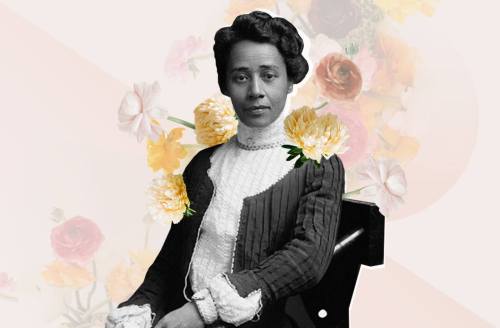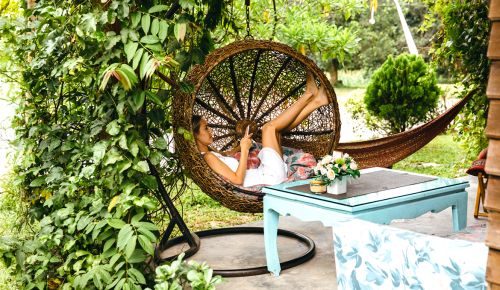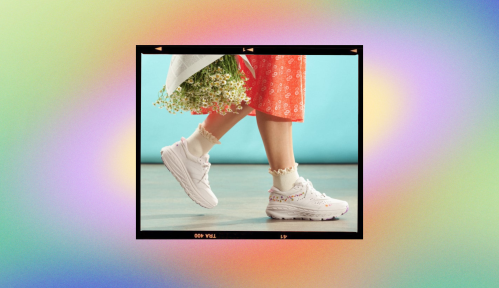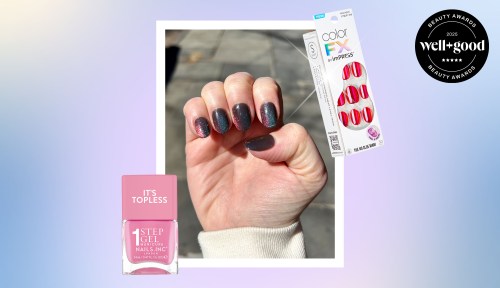I’ve thought a lot lately about the stories time takes from us.
A year or so ago I was deep into rummaging through Black history at the turn of the 20th century for a research project I was working on. In the process of digging into the strides Black folks had made in the three short decades since slavery ended, I began to encounter—over and over again—women. Black women. So many of us. They cropped up everywhere: in the shadows of famous men and well-documented events; delivering lectures at conferences with W.E.B. Du Bois; sharing stages with Frederick Douglass; leading movements alongside John Brown; running newspapers and writing books that celebrated other Black women from times earlier than theirs.
Despite protests from their white sisters, they were there at the first women’s rights conventions. They were there, speaking and protesting at World’s Fairs, including Chicago’s storied Columbian Exposition in 1893—the setting of The Devil in the White City. In those places, they gave speeches of their own about how Black women’s freedoms would not be pushed aside. They coached a young Ida B. Wells on persuasive public speaking, and gathered their community together to help launch her anti-lynching campaign—a revolutionary catalyst that charged an entire generation to stay active in the fight for our lives. They were at Southern train stations and boat ports, helping young Black girls in search of better jobs gain safe passage north, after realizing they were too often getting picked off en-route and thrown into brothels or early graves. These women were fierce, brave, brilliant thinkers and activists. And until recently, I knew too few of their names.
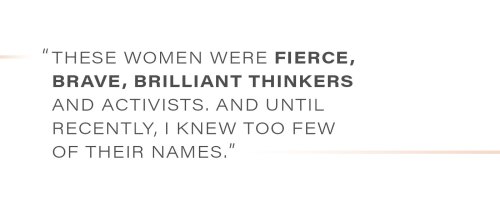
When I first heard about these pioneers I was angry that it had taken me so long to encounter them. It made me even more upset to realize just how much their legacies have been minimized by history. So, in the wise words of Kendrick Lamar, I thought fuck that and made a commitment to devote more creative projects to exploring the extraordinary lives and careers of these ladies.
The first outgrowth of this commitment is Race Women, an Instagram account that honors our earliest Black feminist foremothers.
For many of us, the bulk of our civil rights history starts in the mid-1950s, with Rosa Parks or maybe Emmett Till, proceeded at a quick pace by the big milestones that were Martin Luther King Jr. and Malcolm X and the Civil Rights Act of 1964. There were earlier torch bearers, of course, and significant ones: Harriet Tubman and Sojourner Truth, Douglass and Wells, Booker T. Washington and Du Bois and Marcus Garvey. People responsible for helping us navigate our way out of hundreds of years of bondage by empowering us to discover who we could become.
But, as I started to learn, there were also others. People, women in particular, who came before even those torch bearers, or were their contemporaries, who added to that chorus of possibility. Women in the 1800s and early 1900s who laid down the bricks with or for those whose memories have survived, only to themselves fade into invisibility. They spoke out for a broader vision of the future than what their day allowed for. They talked about fear and injustice, about what it means to be Black and female, over a hundred and thirty years before Kimberlé Crenshaw. These women, among the first generations to live in a “slavery-free” America, faced adversaries all around them: white women, Black men, strict, prescribed gender roles of their time. But this reality didn’t hold them back. In fact, it compelled them to be unified.

Learning about these women means connecting with a part of me I didn’t know existed. It means restoring something I felt robbed of. This history, these women, are my inheritance. They fought for me. They fought for the possibility of me. I didn’t know about many of them—luminaries like Maria W. Stewart and Hallie Quinn Brown and Victoria Earle Matthews—but I’m getting to know them now. I need us to know them, too—all of us—so that together we can carry their important legacies into the future. History at its best is an activity. It’s something to be repeatedly mined and questioned and restored, so the next generation can have a fuller picture of who they are, where they came from, and who they can become. Race Women, I hope, will be an entry point into that activity—a place to discover more pieces of ourselves, while celebrating the women who got us this far.
To learn more about some of the earliest Black feminists, follow Race Women on Instagram.
Sign Up for Our Daily Newsletter
Get all the latest in wellness, trends, food, fitness, beauty, and more delivered right to your inbox.
Got it, you've been added to our email list.
